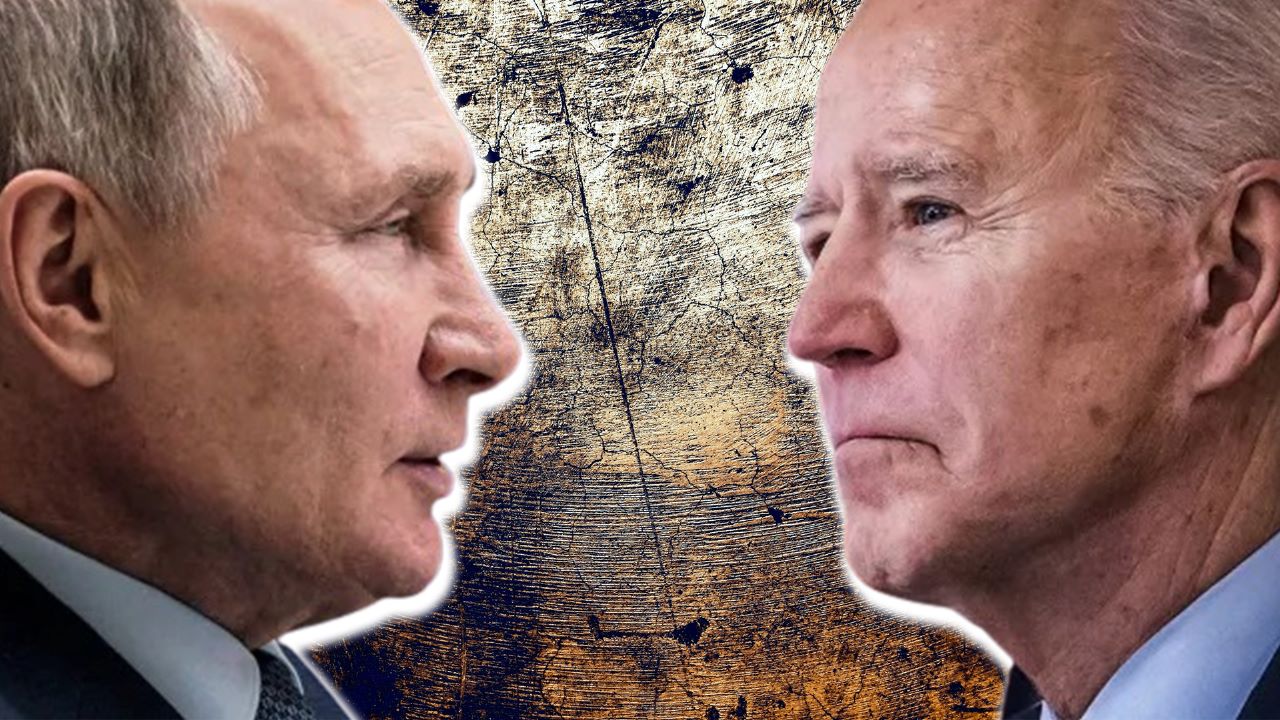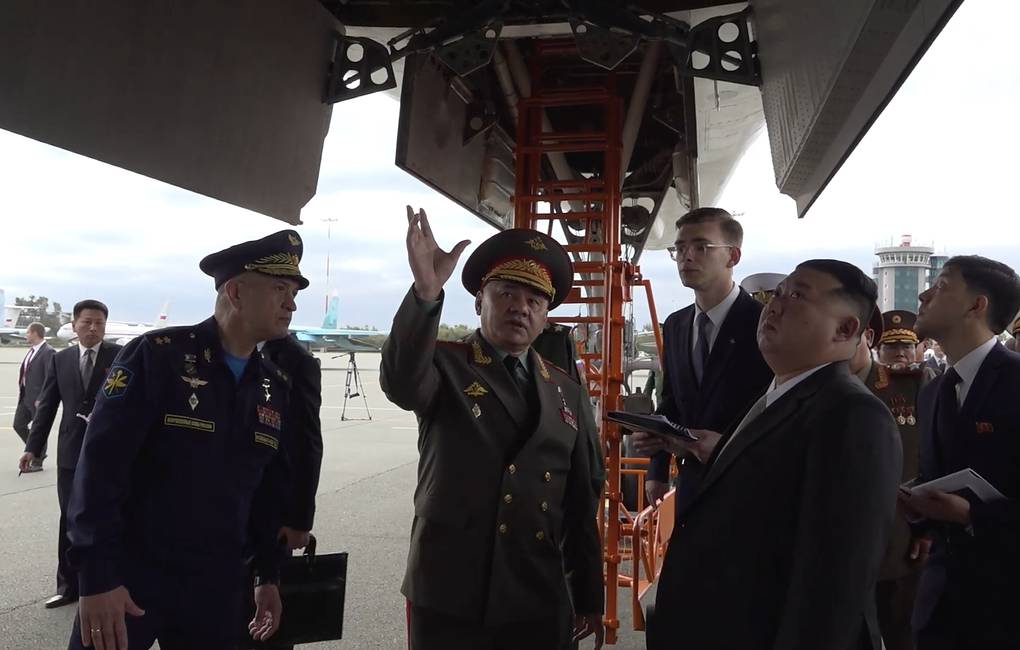US Jittery With “CRINK Alliance” That Opposes Its Hegemony; Biden Pushes World Towards Nuclear War: OPED

While growing apprehensive of CRINK nations, the Biden administration has finally started sending recently allocated US $61 billion towards its proxy war in Ukraine, the majority of which shall land into the grips of the country’s military-industrial complex.
Meanwhile, Kyiv has started its fresher attempts of further escalating the conflict, thus possibly pushing it to nuclear war – a devastating scenario that none of the countries in the world are expecting.
According to media reports, Ukraine is using American drones to attack oil facilities deep in Russia, while Washington and its NATO allies are even suggesting Volodymyr Zelensky launch attacks on Russian territories.
Recently, the United States sent a longer-range version of its ATACMS missile with the instruction to use these weapons to cause optimum damage to Russia’s military bases and economy. For Zelensky, whose tenure as president expired on May 20, this has emerged as a grand opportunity, as now he can indefinitely prolong the war and continue in office without holding any elections.
AfriPrime App link: FREE to download...
https://www.amazon.com/Africircle-AfriPrime/dp/B0D2M3F2JT
Meanwhile, Philippine President Ferdinand Marcos Jr – son of an infamous corrupt ruler is showing signs of participating in Biden’s proxy war in Ukraine while Washington has seen initial success in dragging Marcos into its hostility against China.
It may be noted here that, although Washington generally avoided its direct involvement in territorial disputes in Asia in the past, ever since Joe Biden became president, America has been increasingly getting involved in such disputes—particularly, whenever a dispute involves China, the US is nakedly siding with the anti-China nation, thus portraying China as a threat to the region and encouraging confrontation with it.
By continuing desperate actions of pushing the Ukraine conflict into further complications and attempting to destabilize Asia by plotting another war between China and some pro-US and anti-China nations, Washington clearly is indulged in a dangerous gamble that may ultimately put the entire world into extremely uncertain and possible catastrophe – particularly if we witness the beginning of a nuclear war or third world war.
Meantime, US Secretary of Treasury Janet Yellen recently said, the US and its allies are nearing agreement on plans to provide Ukraine with a multibillion-dollar loan which would be linked to profits accrued from frozen Russian sovereign assets. She told the Senate Appropriation Committee on June 4 that the proposal comes as Washington and its G7 allies – the United Kingdom, Canada, France, Italy, and Japan are seeking ways to urgently unlock more funding for Ukraine.
Yellen further said Washington has been discussing with other G7 members the possibility of giving Ukraine a loan, “allowing the windfall profits [from Russian assets] to be used” to pay it off. This approach, she said, “seems to be commanding considerable support.”
Reuters reported, citing Brent Neiman, the undersecretary for international finance at the Department of Treasury, that the United States has been pushing its allies to embrace a loan backed by income from the frozen assets that could provide Ukraine with as much as US$50 billion in near-term funding.
Neiman further said the proposed measure would give Ukraine an immediate fiscal boost, although technical issues still needed to be worked out.
It may be mentioned here that the loan has emerged as the top option, given that G7 countries remain at odds over seizing Russian assets outright.
Meanwhile, with Washington’s increased attempts of further intensifying its proxy war in Ukraine and confiscating Russian assets, Kremlin spokesperson Dmitry Peskov has termed the US as an “enemy” although it remains unclear if the use of the word signals an official policy change, as the spokesman had previously argued that only President Vladimir Putin can make such decisions.
The Kremlin previously called the United States and other Western countries that have supported and armed Ukraine and imposed sanctions on Moscow “unfriendly states” or “opponents.” But Peskov’s statement, describing the United States as an “enemy,” is a significant sign of Moscow’s growing anger at Washington, which may result in further intensification of rivalry between the two nations.
AfriPrime App link: FREE to download...
https://www.amazon.com/Africircle-AfriPrime/dp/B0D2M3F2JT
In the meantime, when the US and its NATO allies are using media outlets against Russia and Moscow’s allies at a growing level, Russia is gradually becoming cornered as it fails to counter such offensives despite the fact that, in today’s world, media war is considered equally essential and important.
Although Russia is showing significant signs of its advantageous position in the Ukraine war, it is gradually becoming weaker in countering another vital segment of modern warfare – the media war or soft war.
US Scared Of “CRINK” Alliance?
Washington policymakers have coined the acronym “CRINK” to represent the alliance of China, Russia, Iran, and North Korea, expressing significant concern and often labeling it as an “Axis of Evils.”
This term echoes the language used by President George W. Bush, who described Iraq, Iran, and North Korea similarly decades ago. This fear is not limited to the United States; many Western capitals view this alliance as a new and formidable challenge.
Each of these nations boasts a strong military and Iran and North Korea are making significant advancements in nuclear weapons development, military hardware, and missile technology. In response, Western policymakers are intensifying their efforts to align as many countries as possible against CRINK, using both incentives and pressure.

On the other hand, Washington and its European allies are intensifying intimidating and punitive policies by continuing to impose sanctions on those four nations.
Western nations often attempt to influence countries in the Global South by highlighting issues like human rights, the rule of law, and freedom of expression. They sometimes label governments as “autocratic,” “dictatorial,” or “authoritarian” to pressure them into prioritizing Western interests over national ones and distancing themselves from China, Russia, Iran, and North Korea.
An Economist Intelligence Unit assessment categorizes only about 14 percent of the world’s countries as “full democracies”, approximately 30 percent as “flawed democracies”, and nearly 56 percent as either “hybrid regimes” or “authoritarian”.
Given that the United States cannot effectively compete with its adversaries with support from just 14 percent of governments, it is increasingly willing to compromise its principles to garner support from 86 percent.
While the US seeks to isolate CRINK countries, many Americans believe their nation is grappling with internal issues that undermine its moral authority and expose it to accusations of hypocrisy and double standards.
Former US President Ronald Reagan famously called the Soviet Union an “evil empire” in 1983, and his clear moral stance effectively defined the contrast between the US and its superpower adversary.
Although Bush’s rhetoric echoed Reagan’s, former Bush speechwriter David Frum has noted that President Franklin Delano Roosevelt inspired the “Axis of Evil” term. This continuity shows a long-standing American policy of viewing Russia, and now China, Iran, and North Korea, as adversaries.
American policymakers’ fear of CRINK stems from several factors. Firstly, these nations oppose US hegemony and aggression and reject America’s ambition to dominate the global order. Secondly, they criticize the US for making false allegations against rival nations and propagating conspiracy theories.
Despite the US concerns, CRINK nations are not yet a fully unified group. Most of their cooperation is bilateral, such as China-Russia diplomatic coordination, military exercises, and trade; Iran and North Korea’s arms sales to Russia; or China’s economic support to North Korea. Trilateral cooperation, like the China-Russia-Iran naval exercises in the Gulf of Oman, is rare.
While the BRICS group is gaining strength with new members and increased interest from countries like Bangladesh and Thailand, there are significant gaps in crucial areas. The United States and its NATO allies emphasize strengthening their relationships, and their media consistently cover member countries.
In contrast, the media in CRINK nations often neglect to highlight their allies in the Global South. For instance, despite Bangladesh’s growing geopolitical importance, it rarely features in the media outlets of China, Russia, Iran, or North Korea.

Moreover, the internal dynamics within CRINK nations themselves present obstacles to forming a cohesive alliance. China and Russia, while collaborating on various fronts, have their own strategic interests and priorities that do not always align perfectly.
Iran and North Korea, though united in their opposition to the US, have different regional concerns and objectives. This lack of a unified strategic vision further complicates the possibility of CRINK emerging as a formidable, cohesive force.
In addition to geopolitical considerations, economic interdependence and competition among CRINK nations can also serve as a barrier to a unified front. China’s Belt and Road Initiative (BRI), while fostering economic ties with many countries, also creates dependencies that can lead to tensions.
Russia’s economic strategies and its role as a major energy supplier introduce another layer of complexity. Iran and North Korea, with their economic challenges, may rely on support from China and Russia, but this dependence can also create friction.
If CRINK nations aspire to lead the Global South towards an alternative world order, their media, and policymakers must address this oversight. Without giving due attention to their allies, the US and other Western countries have little reason to fear a united front from China, Russia, Iran, and North Korea or a significant shift away from the current unipolar world order.
Ultimately, while the CRINK alliance presents a challenge, its success in altering the global balance of power depends on overcoming internal differences and fostering a more cohesive and strategic approach. Until then, the US and its allies will continue to watch and respond to the evolving dynamics of this emerging alliance.
AfriPrime App link: FREE to download...
- Questions and Answers
- Opinion
- Story/Motivational/Inspiring
- Technology
- Art
- Causes
- Crafts
- Dance
- Drinks
- Film/Movie
- Fitness
- Food
- Jogos
- Gardening
- Health
- Início
- Literature
- Music
- Networking
- Outro
- Party
- Religion
- Shopping
- Sports
- Theater
- Wellness
- News
- Culture
- War machines and policy

